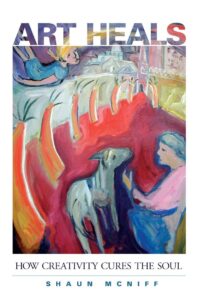


What I often question, and would love your thoughts on, is as we age, why does our mortality become harder to accept? Is it our long span of health, our independence, our previous functioning that now disallows us to acknowledge we are mortal, that we might become ill or in some way disabled? As Wordsworth wrote in Intimation of Immortality…as children, we arrive in this world: But trailing clouds of glory do we come From God, who is our home: Heaven lies about us in our infancy!
Maybe it is because our children don’t have as firm a stake in the world as we adults have, because of the length of time…though throughout life, all of us will come to a point, where because we live in a human body, we must compensate, we must adapt. A broken bone; a surgery, an illness. Sometimes it is only for a short while, but sometimes it is longer. And it can lead to death. And it always hints at our mortality.
CHILDHOOD SURGERY
I was only five, when after eye surgery on my left eye, I had to wear bandages on both eyes for a week. Why both? The explanation: the doctor didn’t want my good eye to have to work too hard. Weird? Yes, and very difficult for a child to be blind for a week.
I also have a friend who recently developed MS, Multiple Sclerosis, so that now her ability to compensate and adapt with the negatives of this condition colors her life.
Because if we lose a limb, or develop a disease, we are still the same person, though now challenged. And how the world sees us, how we live and adapt…has definitely changed.
The change might be the result of physical or mental scars from a traffic accident, a fire. And though integrally the same person, we eventually accept our losses, experience the struggle of adjustment, continue to live in the world, accepting this challenge, realizing that how we think and love has not been changed. We learn that if someone labels us, the speaker is doing this to distance himself from what could also happen to him. Because as humans, we carry with us that deep-seated fear: if it happened to him, it might happen to me.
DEALING WITH PHYSICAL DIFFERENCES
Do we instinctively know that our bodies are fragile? From the beginning, we crave distance from the pain and suffering of others. But as a child, I did not realize I could give pain to someone else when I wanted to look away from the changes they were going through; that they might be suffering. Maybe I found my way into nursing to better understand that reaction, to acknowledge it, and to be more open and understanding. Humans, whether they have lost a limb, an eye, are unable to walk, are now blind, need hearing aids etc, are still human, still engaging and able to give and receive love.
Once, when I approached a blind man, warning him that the usual entrance to the mall was blocked by decorations, he whirled on me, told me he knew exactly where he was, and how to continue on. And so I stepped back, slowly realizing that I had invaded his space. In that particular situation, I was wrong. But then…another question…do we take for granted our bodies and how to care for them?
LIVING IN THE BODY
Should we approach each car ride, each walk, each climb up a ladder with the belief that no harm will come to us? YES! As humans, whether totally healthy or challenged, we must walk out into the world with the belief that ALL WILL BE WELL. That is not to say…we should not be careful; That IS to say, we cannot and should not live with dread and fear.
So enjoy the sunshine, the boating, the water skiing, the run around the park. Accidents do happen…but life is about LIVING. It is not about fear.
That’s why our children jump off porches, ride their bicycles down steep hills…climb mountains, swim beyond the markers…take the hardest ski jump.
They live in their bodies. They enjoy the adrenaline rush. We hold our breath. It is part of living.

6 Responses
I think as we get older, that fear becomes more pronounced, unfortunately.
I agree, but I so admire all that you do, Carol. You are claiming your SPACE and living in it. That is admirable.
Beth, It’s so easy to live in fear. I’m wary every time I go out, but still make myself do things my lazier self would rather avoid. It’s good to get out with friends and see shows and have fun. But you’re right, that mortal anxiety is always lurking in the background, more so as we age.
Laurie, we are so alike in many ways. I wish we could walk your hills together and talk about this. It is all about adjustment, and being
certain of who we are and what we can offer. Living in the body means good health care….as well as good mental healthcare. Thanks, my Friend.
Life is about living and not fear, but that fear eventually closes in to many I’ve seen age. I’m in my 70’s myself now. My husband had an aunt who lived to 107. The first 101 years were great. She had fallen several times without hurting herself. She said “I just bounce right up.” Then, one day, she fell and broke her hip. She didn’t bounce right up. They were able to do a partial hip replacement followed by months of rehab in a nursing home (she did manage to return home). From that day forward she was a totally different person, imprisoned in a cage of fear. I’ve seen too many people age and develop fear. I can sometimes feel the fear, like during the winter when ice and snow is on the ground. I wonder how a person best fights it besides positive self-talk.
Alana what you say is so real and profound. We come into the world, thinking we will always approach life in the same way…eager
and healthy, but that isn’t always the case. I admire the story of your aunt who lived to be 107. Certainly, as the years progressed,
she was living! So why fear any change? It think we slowly learn to be more careful. To judge our actions. I went to pull the trash
can back into place and fell in the alley. Not smart. I forget I am not 20 anymore. Thanks for reading.